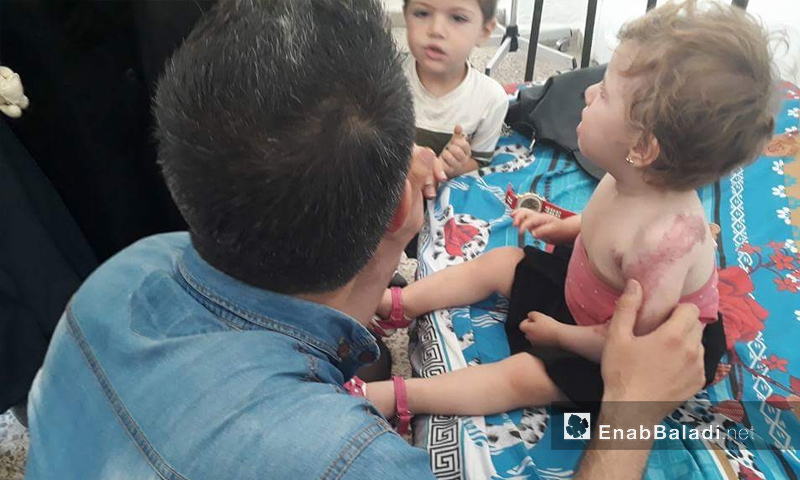The Medical Center at Idlib University has opened a Physical Therapy Center in the city of Idlib, within the frame of responding to social needs, especially people with disabilities, the war-injured people and those with neurological diseases.
Idlib governorate lacks medical centers that particularly focus on physical therapy, which called on the need for launching a center at the University. The Center hosts different medical cases and offers free of charge services, according to Mohammad Bakeer, a professor at the Medical Institute, the Physical Therapy Department, at Idlib University and a trainer at the Center.
Bakeer told Enab Baladi that the urge behind opening the Center, on May 2, aims to achieve benefits at to different levels: The first is to provide services to patients who need physical therapy and cannot afford its cost; the second is to help the students of the Medical Institute acquire practical experience through applying the theoretical courses, to accumulate experience and be able to get job opportunities in the future.
Bakeer pointed out that the center covers the cases staring with diagnoses and ending with the phase of recovery, which takes place according to a remedial plan, supervised by doctors and specialists in physical therapy.
From Theory to Practice in the “Service of Society”
For his part, doctor Taher Hmaidi, the Head of the Medical Institute at Idlib University, said that the idea started taking shape five months ago with the increasing demand on physical therapy and to sharpen the Institute’s students’ practical skills.
In an interview with Enab Baladi, he explained that the Center is prepared to accommodate about 30 cases a day. However, it is yet not receiving more than five cases a day due to its recent launch.
Idlib University has started the Medical Institute during the academic year of 2015-2016 and supplemented it with the Physical Therapy Department in the year of 2016-2017.
The number of the first-year students at the Physical Therapy Department is 50 students; the number of the second year students, however, is no more than 45 students, both male and female, according to the head of the center, which triggered the need for providing the students with practical training within qualified centers.
Sajah Shihan is a second-year student at the Physical Therapy Department and one of the students receiving practical training. She tells Enab Baladi that “The experience is rewarding; we now know how patients are offered physical therapy, as we received theoretical lectures only at the Institute.”
Students at the present are not receiving money for offering care to the patients at the center, according to Sajah, pointing out that the students do not treat the patients without the supervision of specialists and doctors, using therapeutic exercises and certain devices.
According to the trainer and university professor Mohammad Bakeer, the Center receives all types of cases, including neurological, motor-related, disc, bruises, burns, congenital malformations and war-related injuries, covering cases in children, adults, elderly, women and men.
The Center, nonetheless, is facing a number of challenges, such as lacking up to date specialized equipment because they are expensive; the center is yet at the stage of establishment with a constant hope of development in the future.

